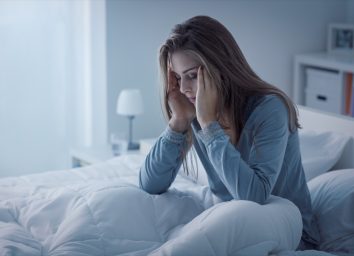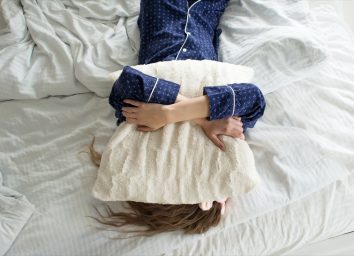What Happens to Your Body When You Don't Sleep
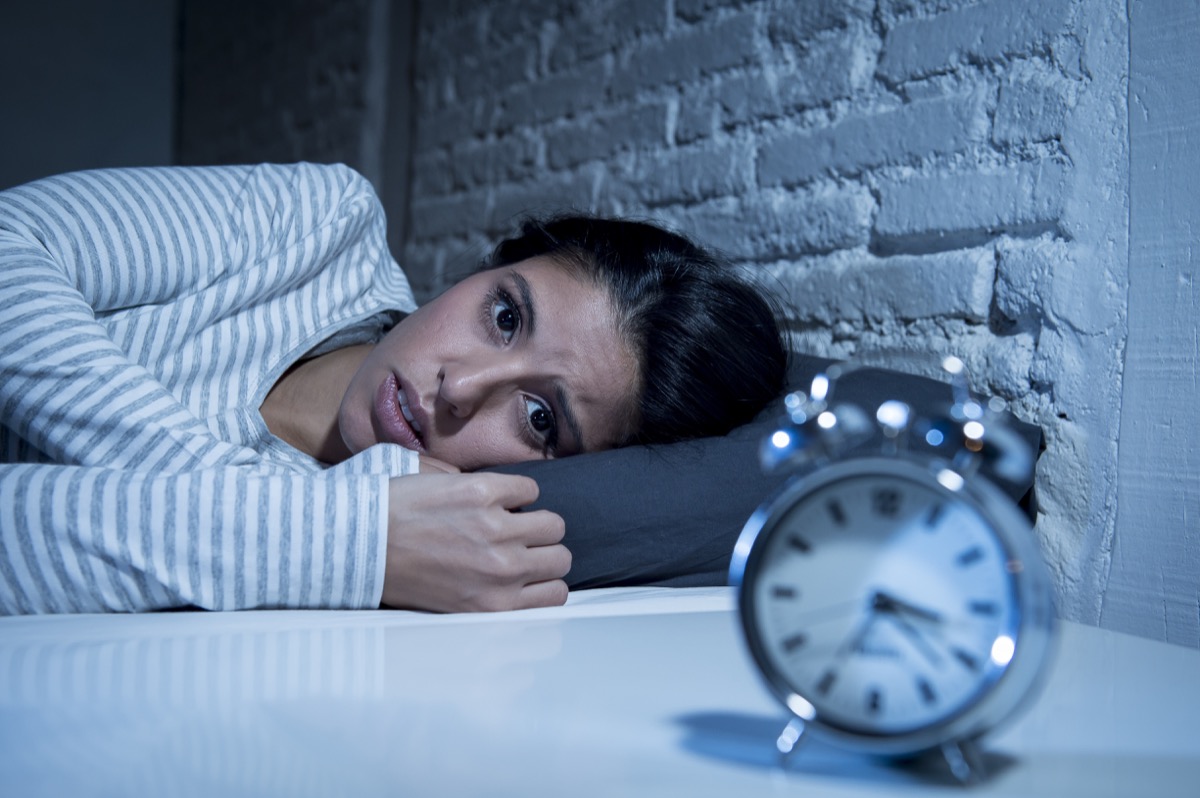
You've most likely been there before—you're tossing and turning in your bed, and even though it's past your bedtime, you just can't fall asleep. Next thing you know, it's morning. And you sure did not get nearly enough sleep.
"Sleep is important to our overall health, wellbeing, and our immune health," Dr. Nicole Avena, PhD, assistant professor of Neuroscience at Mount Sinai School of Medicine and Visiting Professor of Health Psychology at Princeton University says. Clearly, it's important, so what is this lack of sleep doing to your body, exactly? Well, it can have many effects and as you can imagine, isn't the best for you.
Here, we break down just what happens when you don't sleep. (Spoiler alert: There's a whole lot going on in your body!)
Your mood is changed.
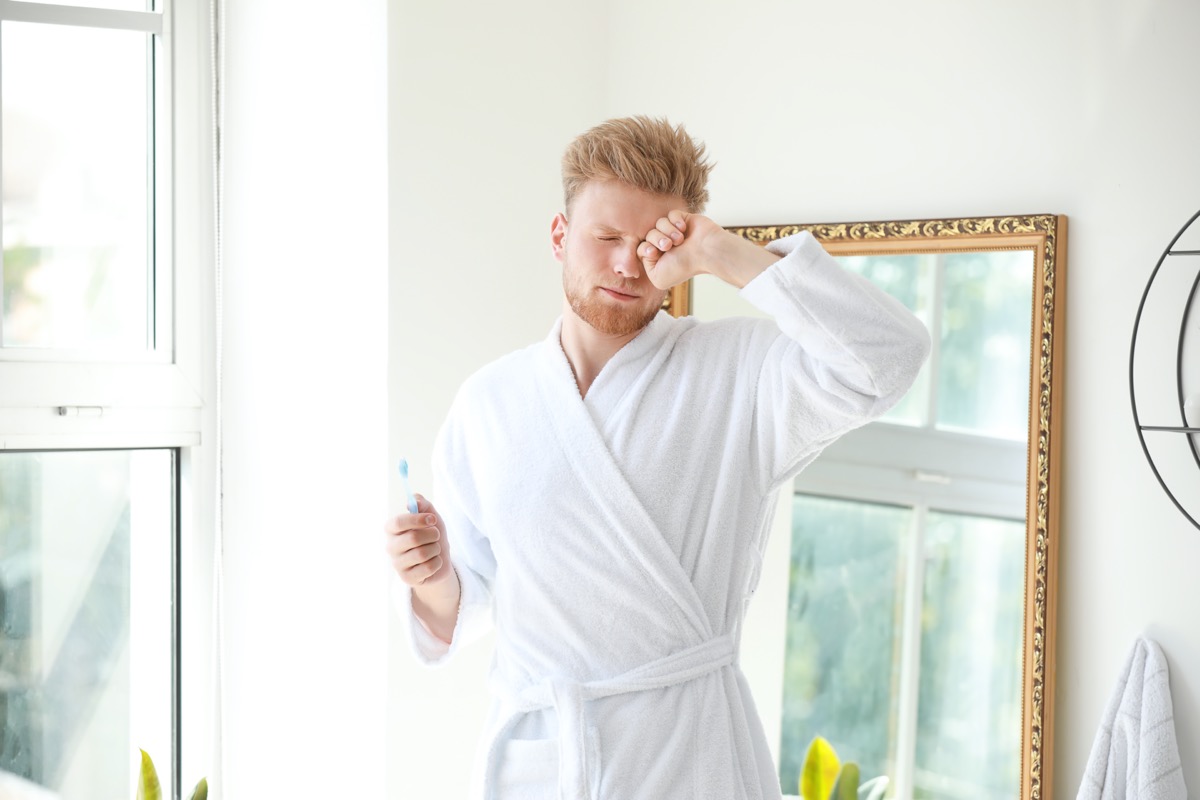
If you find yourself feeling rather cranky, it's important to note that there is a direct correlation between your mood and how you're sleeping.
"Often a person's mood and alertness can be impacted if they don't get quality sleep. Not getting enough sleep is associated with mood swings and depressed feelings," says Dr. Avena. If you're looking for a way to give your mood a little boost when you don't get enough sleep, perhaps try munching on any of the foods that boost your mood.
You can gain weight.
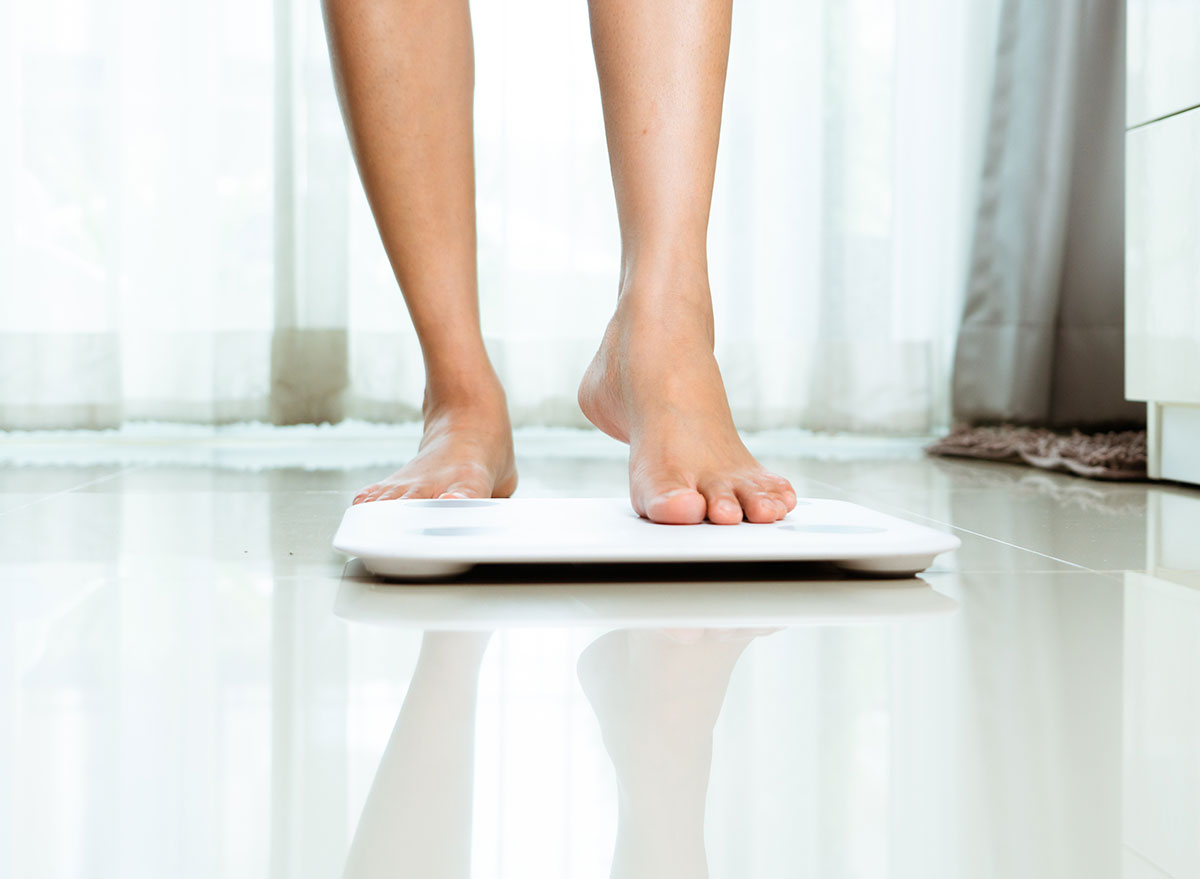
That's right, the less sleep you get, the more pounds you just might end up packing on.
"Lack of sleep can upset the balance of hormones in your body, especially those that control hunger and blood sugar levels. This is why lack of sleep can lead to cravings, and overeating," Dr. Avena says. "Getting enough sleep is key to eating healthier and managing your weight."
Your body can't repair itself.
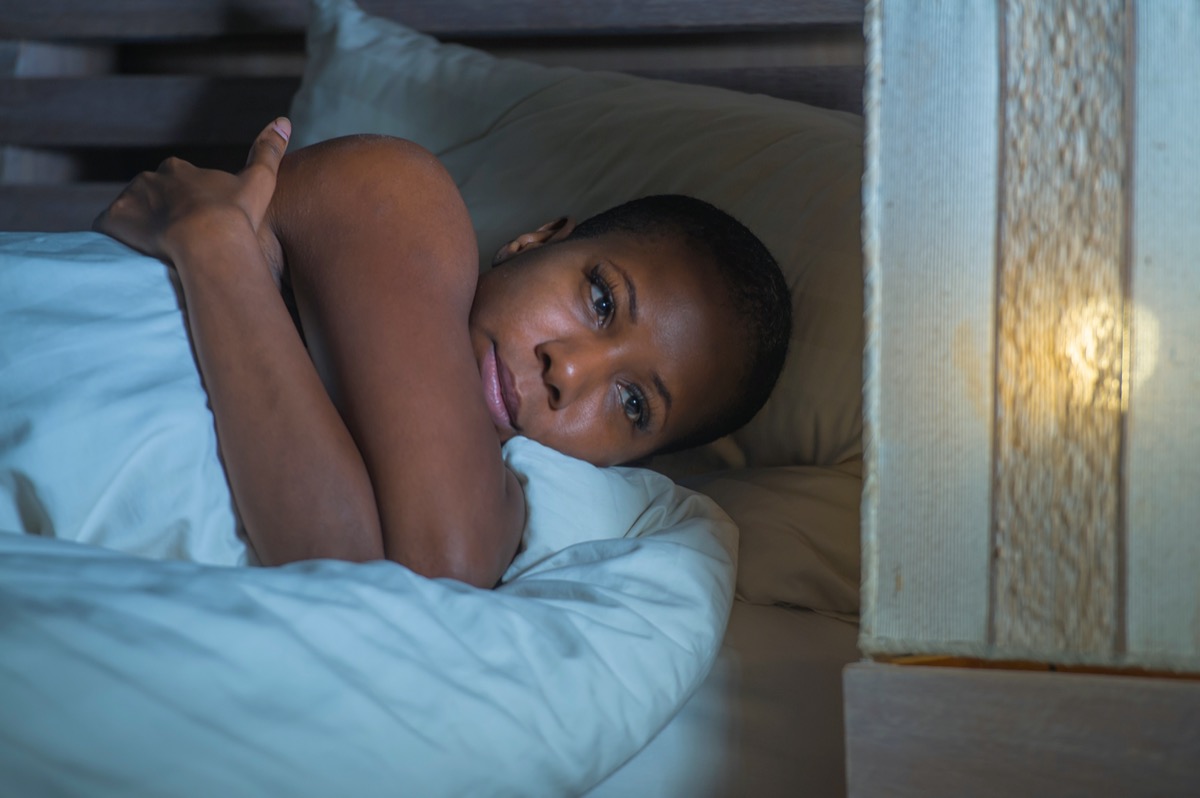
Not sleeping enough can lead you to fall victim to more illnesses. And getting sick on top of not having enough sleep is just a recipe for disaster.
"You will also have a more difficult time fighting off infection and illness," Dr. Avena explains. "Your immune system is hard at work when you sleep, defending your body against pathogens, and recharging itself. Lack of sleep may lead to more frequent colds and other illnesses."
(If you're looking for more helpful tips, be sure to sign up for our newsletter to get daily recipes and food news in your inbox!)
Your memory isn't as sharp.
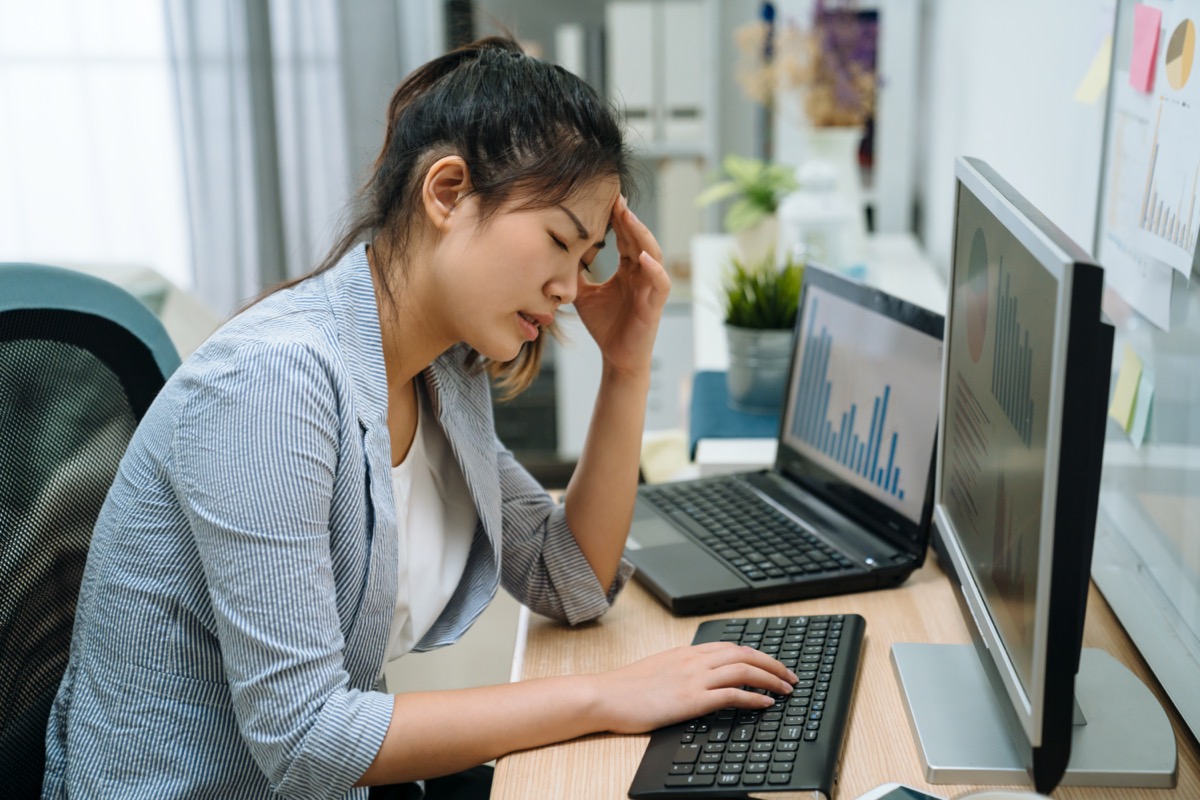
That's right, even your mind takes a hit when you're not sleeping.
"Sleep is a time for your body to heal itself and prepare for the next day. When you deprive yourself of proper sleep, your body cannot repair itself and your brain cannot form the pathways that help you learn, remember, and grow cognitively," Dr. Avena says. "This is why your memory is often worse the day after a poor night's sleep."
And that's not all. You might find yourself not able to do things that typically come quite naturally. It can even
"It will be more difficult to concentrate on daily tasks, and operating machinery can become dangerous. Operating a car while sleep deprived can be as dangerous as driving while drunk."
You can shorten your lifespan.
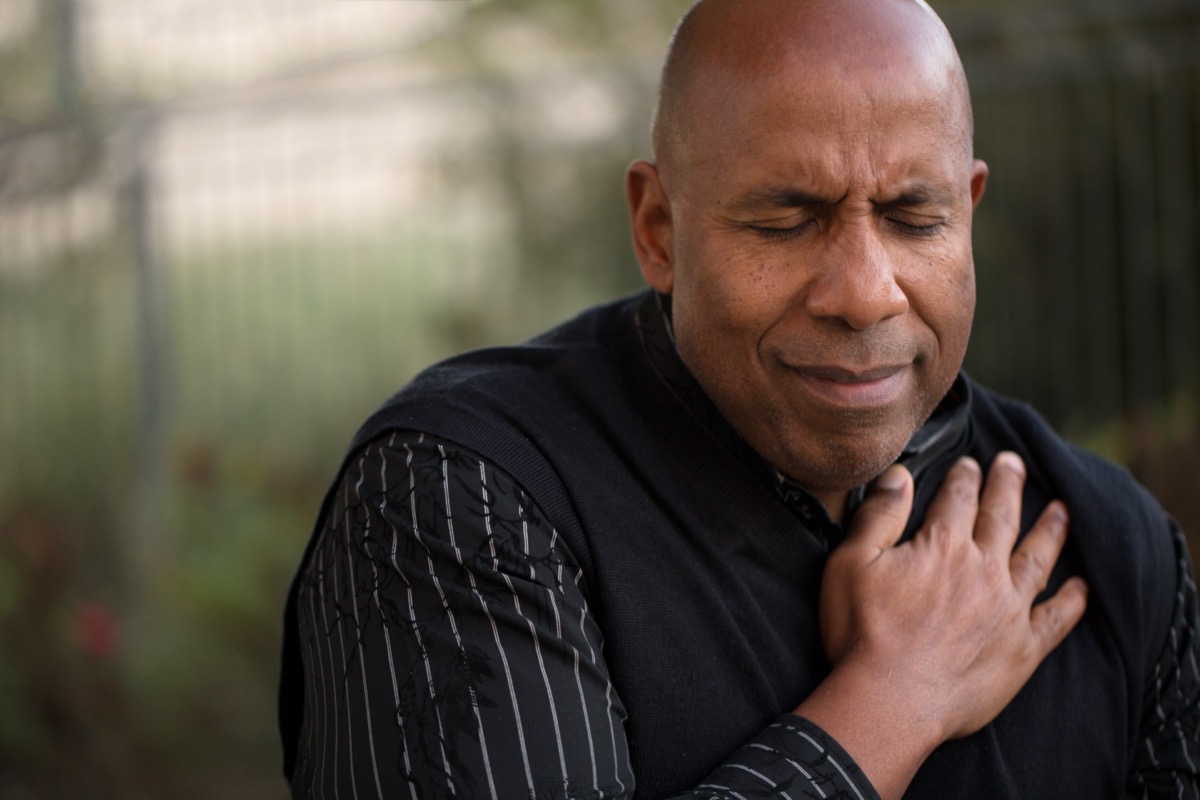
We know—this seems rather dramatic. Sadly, it's true. You could be shaving years off your life when you don't sleep enough.
"Physical side effects of not having enough sleep can be increased blood pressure, increased likelihood of a stroke or heart attack, and a weakened immune system. Sleep deprivation over long periods of time can even shorten your life span," Dr. Avena warns.
So what can you do to make sure you are getting enough quality sleep? As Dr. Avena points out, you want to start with the obvious steps: try to relax, make sure your room is cozy, and even cut back on alcohol and caffeine. When that all fails, though, you can always turn to a supplement if you get the green light.
"When it is OK with your doctor, you might want to consider a supplement, like melatonin. Melatonin is a hormone in our body that naturally rises right before we fall asleep, and taking a supplement can help you to nod off," she says. "You have lots of options when it comes to taking a melatonin supplement. Vitafusion makes a great gummy supplement that is easy to take [and] frunutta makes a sublingual melatonin supplement that dissolves right under the tongue."

